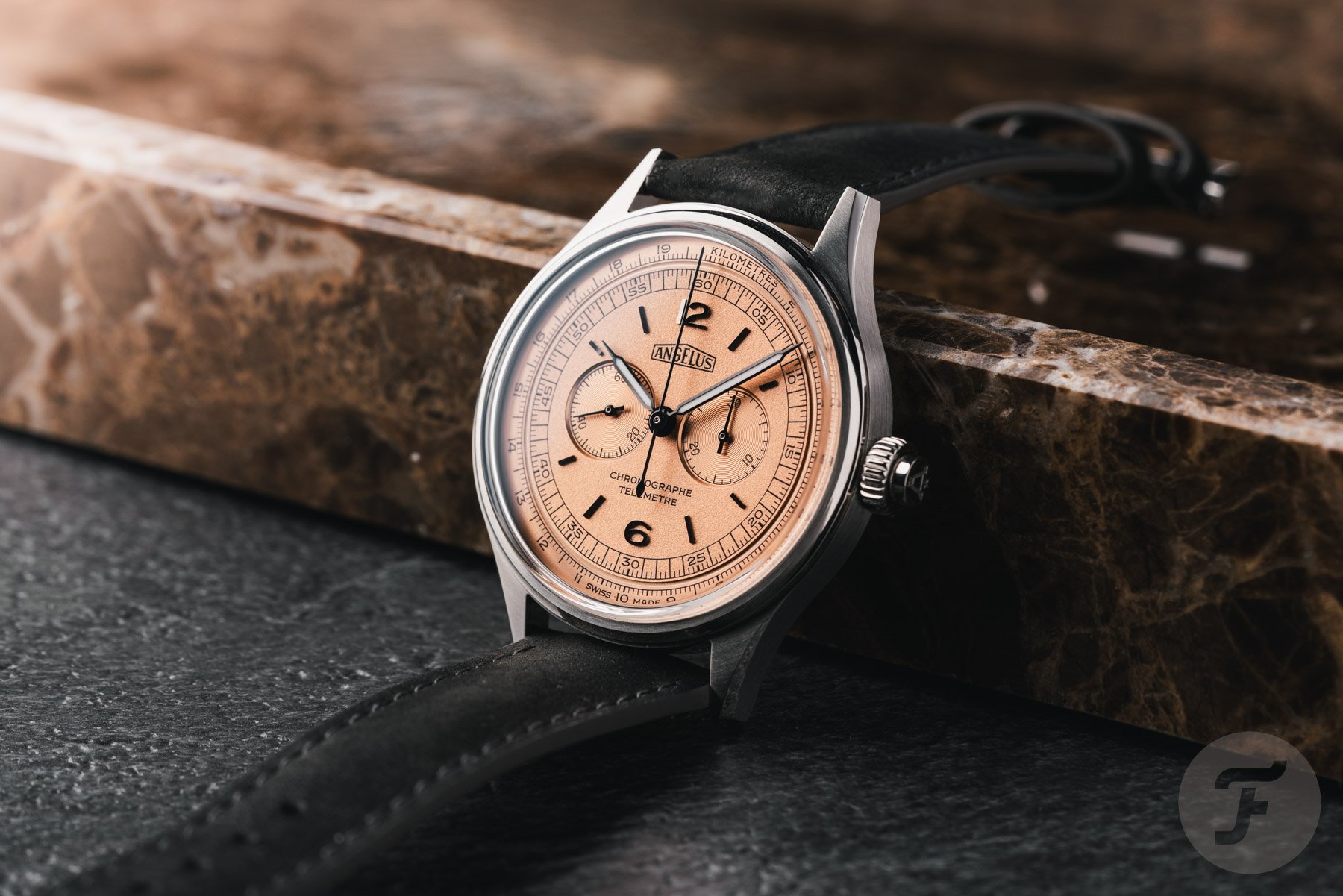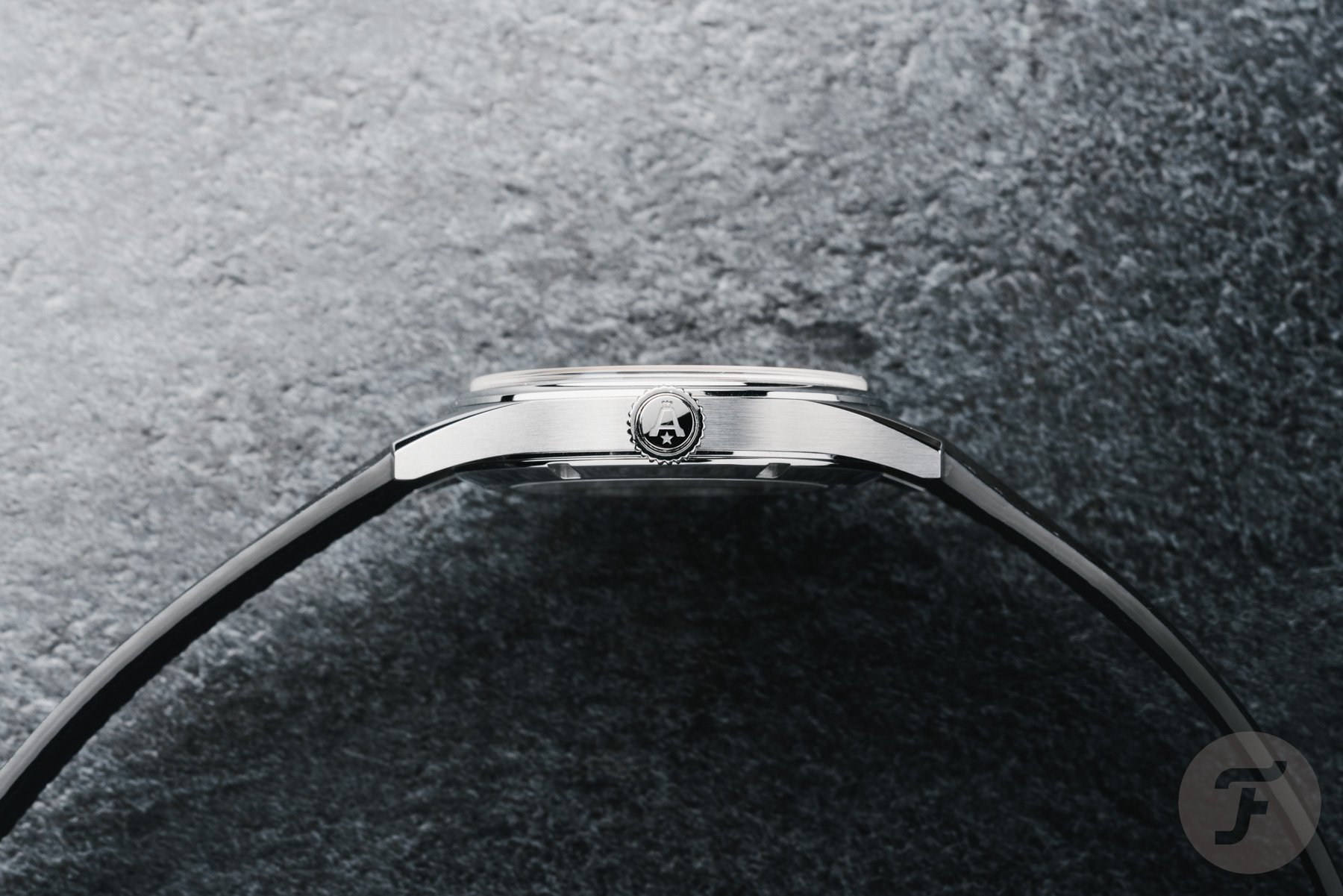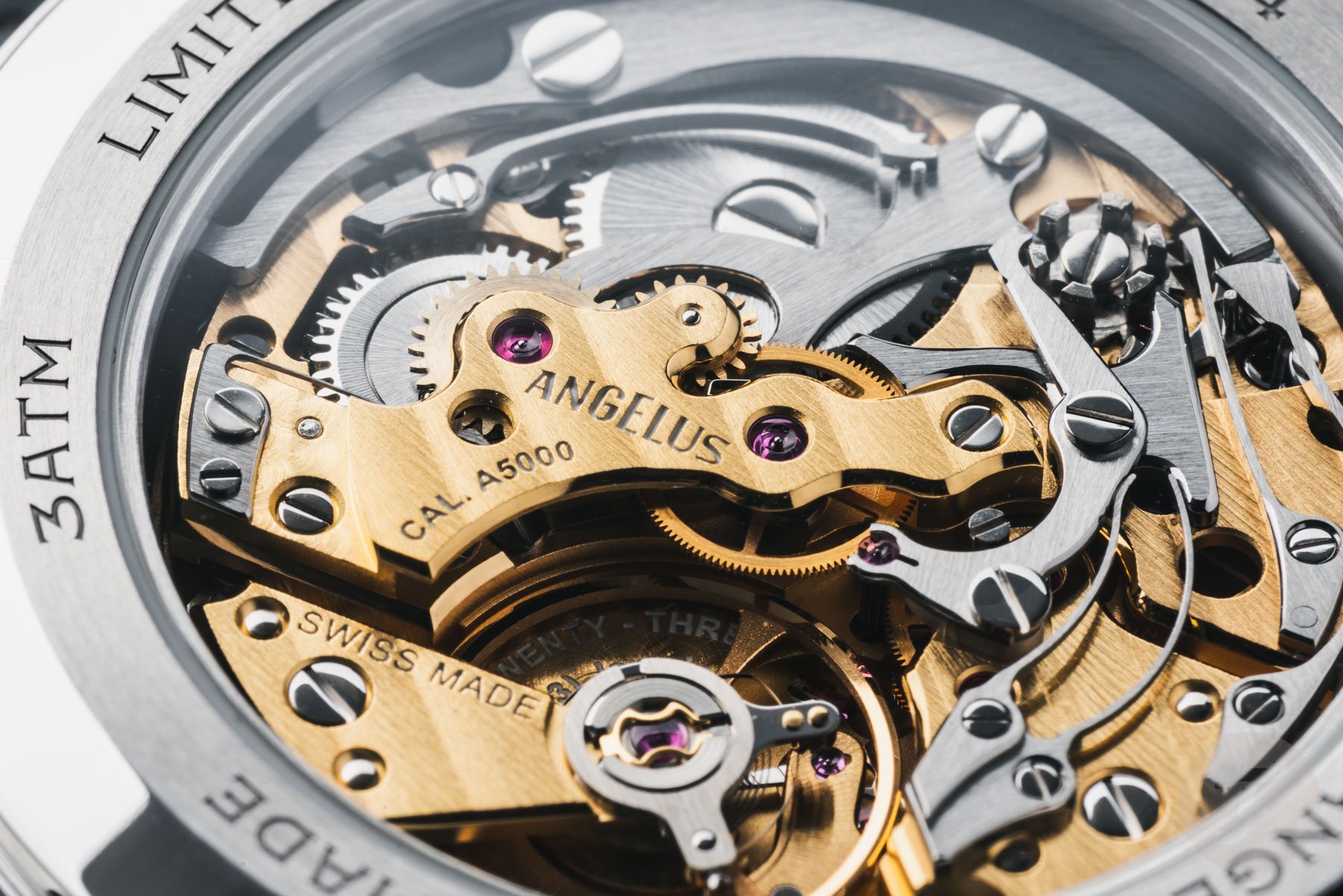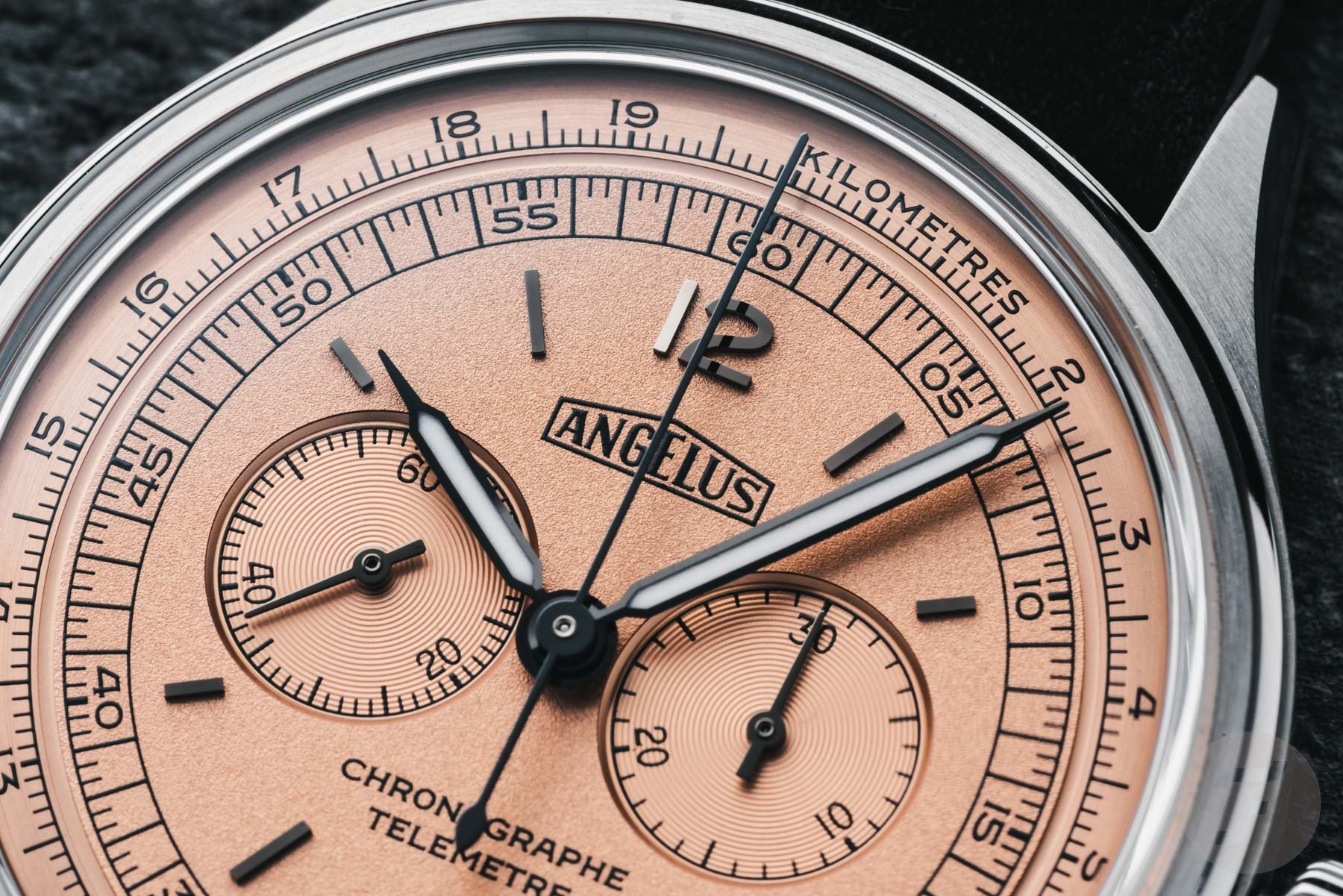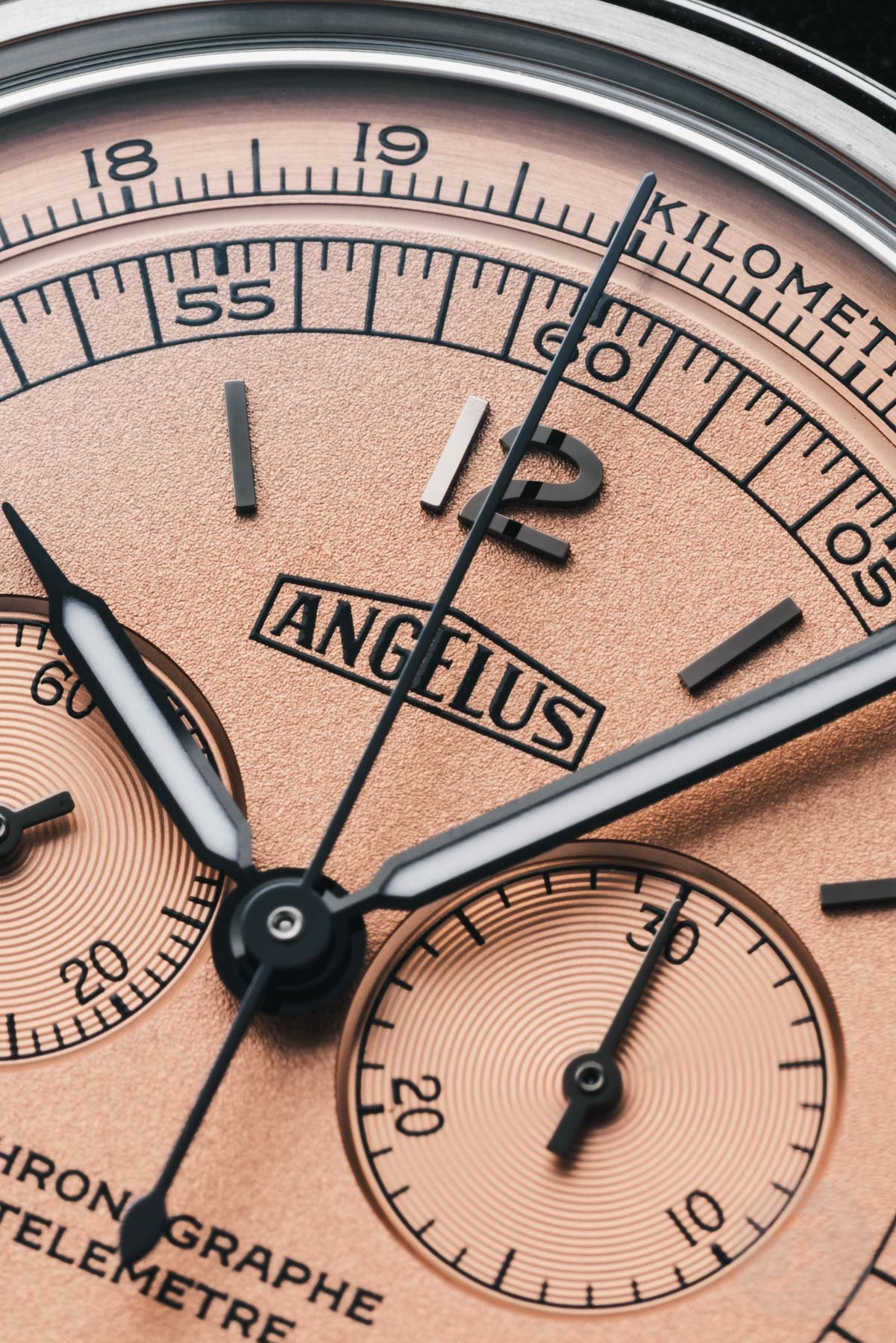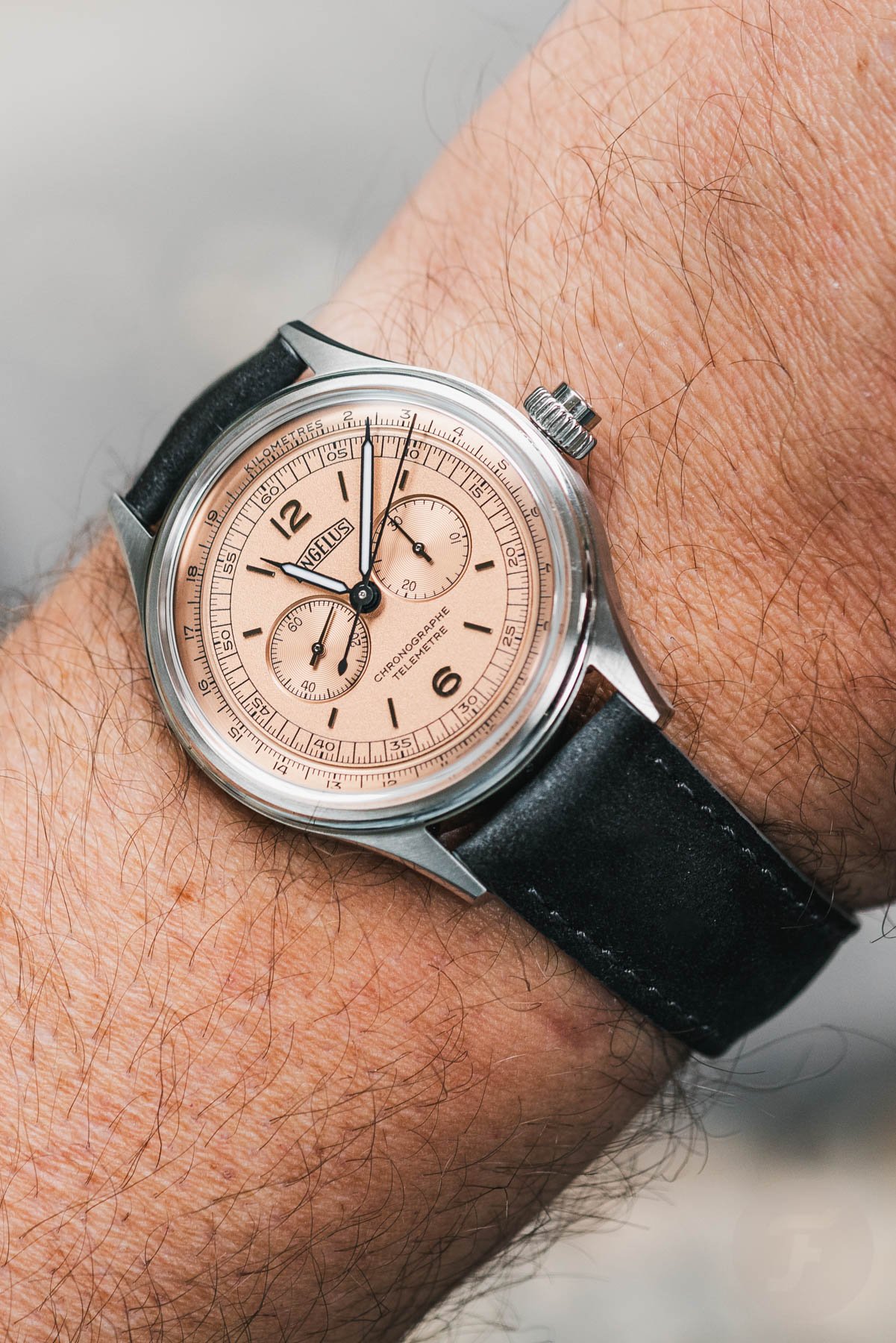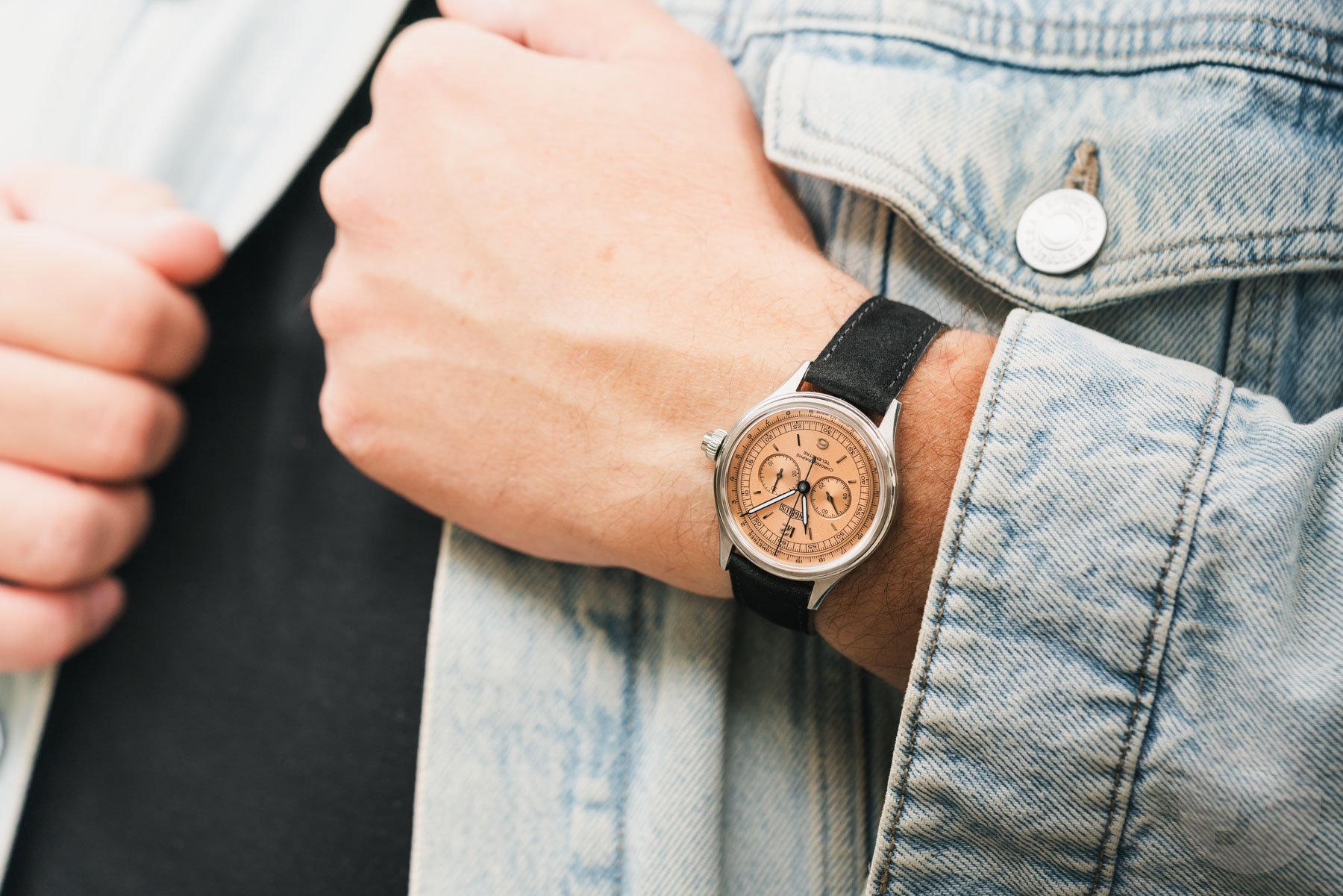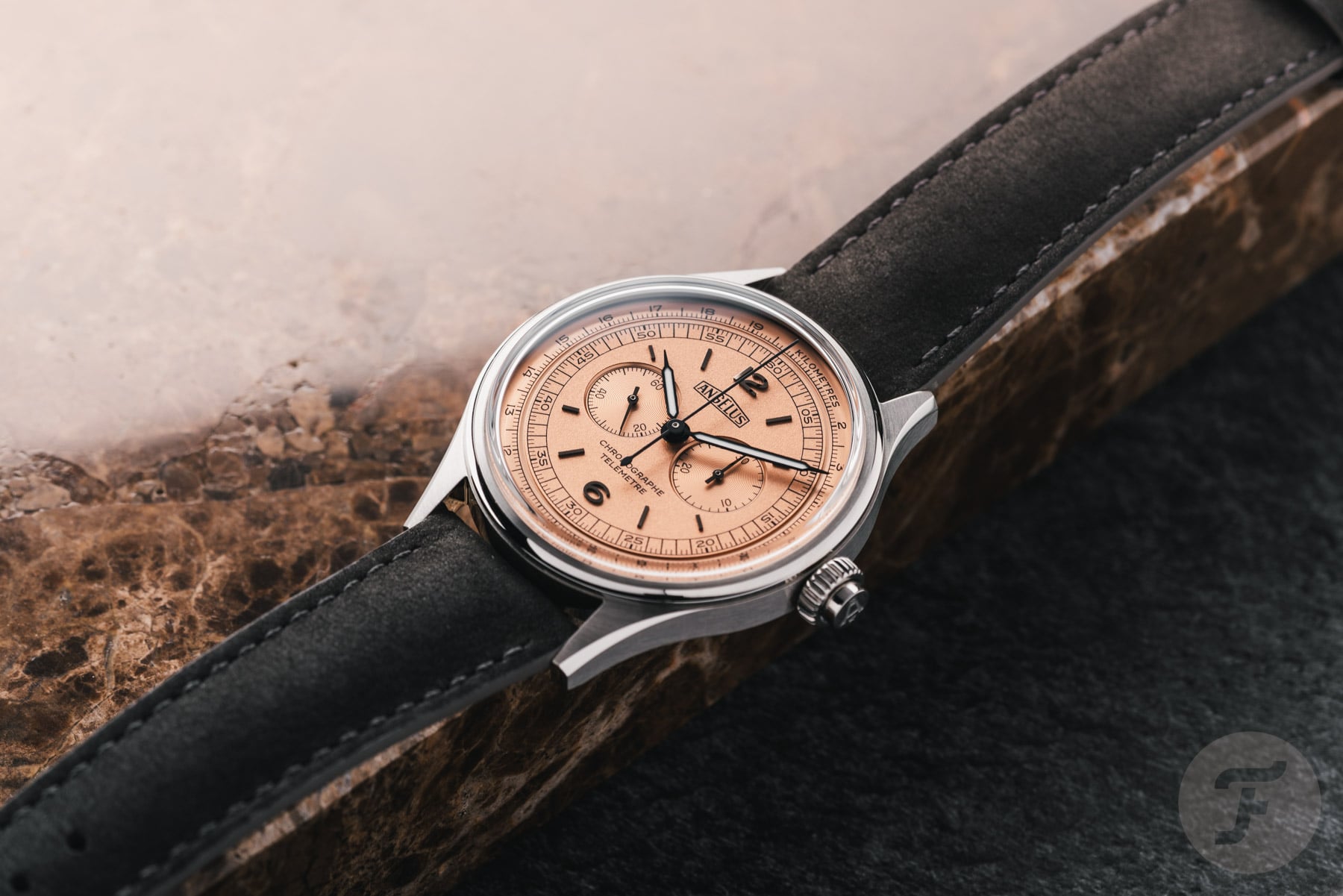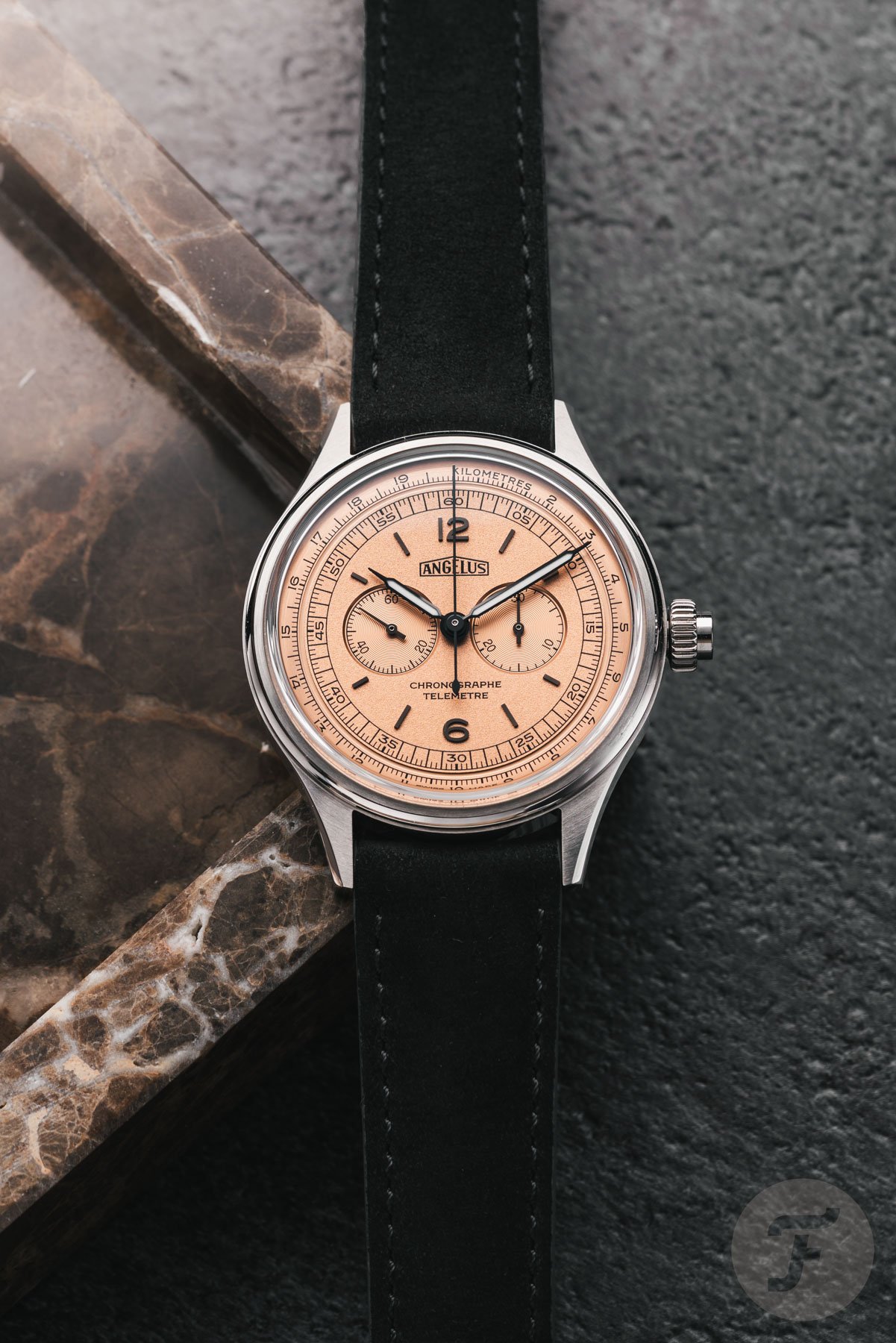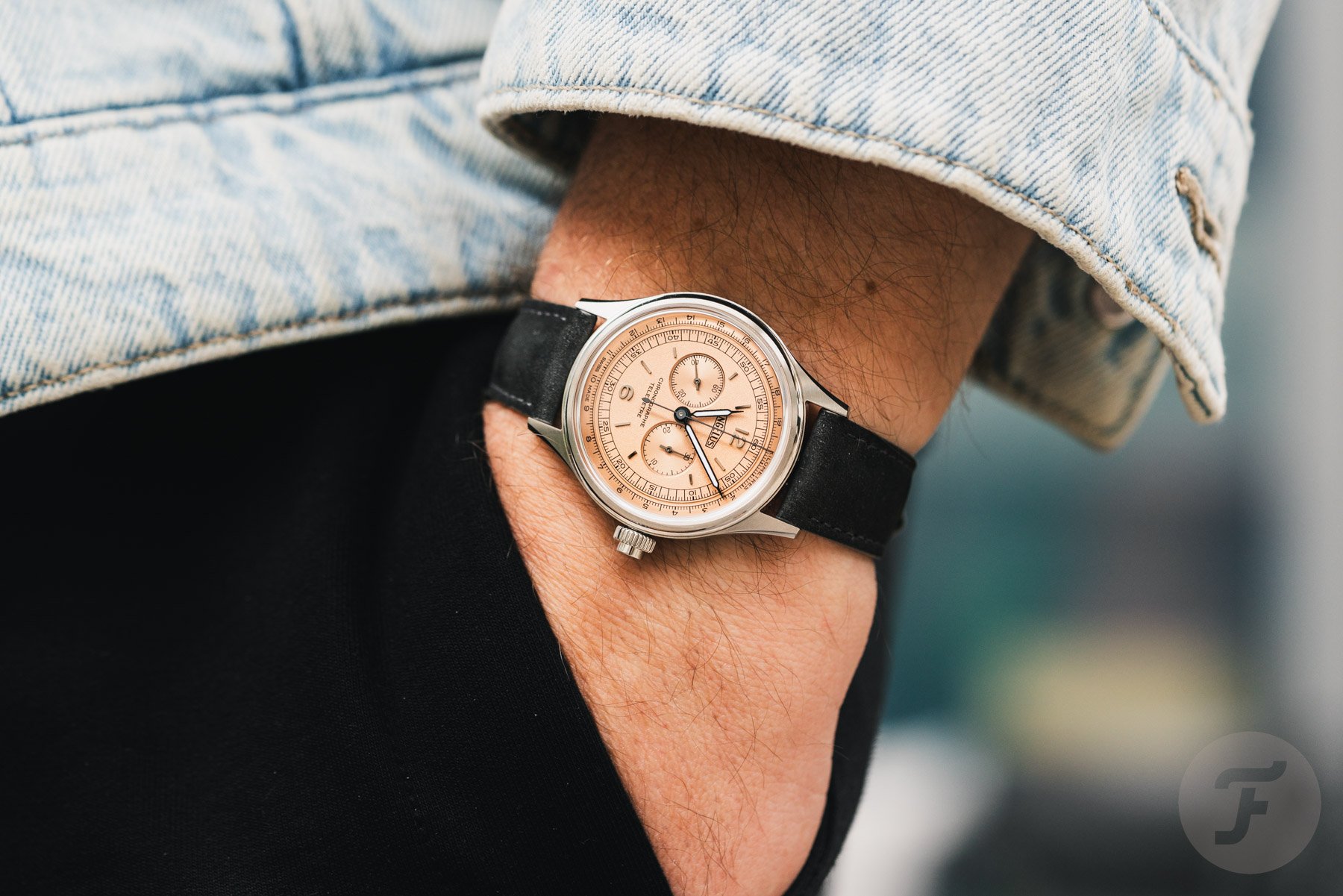Hands-On With The Lovely Angelus Chronographe Télémètre Steel Rose
When I was asked to compile my list of favorite Watches and Wonders 2025 releases, the Angelus Chronographe Télémètre Steel Rose was the first that sprang to mind. So, when I got the opportunity to spend some decent time with it, I jumped on it. I spent a couple of days with this beauty on the wrist; this is how we got along.
The Angelus Chronographe Télémètre Steel Rose costs CHF 17,900. The brand has produced only 25 of these. A gray-dial version, also limited to 25 pieces, and a yellow gold model, limited to 15, came out alongside this one.
The Angelus Chronographe Télémètre Steel Rose’s specifications
The Angelus Chronographe Télémètre Steel Rose piqued my interest as soon as I read about its 37mm diameter. It is atypical for retro chronographs like this to be executed in vintage-correct sizes. The stainless steel case has a mere 9.25mm thickness. Angelus pairs these modest dimensions with a relatively oversized 44mm lug-to-lug, providing the watch with some greater prominence on the wrist. We find a box-style sapphire crystal up top and a sapphire window in the case back. Angelus rates the watch’s water resistance at 30 meters.
Inside ticks caliber A5000. This monopusher chronograph movement is produced by La Joux-Perret, but it is far from your average ébauche chronograph movement. For starters, this one has a lithe 4.2mm profile. Just as importantly, it looks great, which is rare in a world dominated by spartan Valjoux 7750 derivatives. The hand-wound caliber runs at 21,600 vibrations per hour and has a 42-hour autonomy.
The movement features prominent Côtes de Genève finishing and a two-tone colorway of steel and yellow gold. All in all, the caliber does not come across as an ébauche. Angelus has a long history of producing in-house monopusher calibers, dating back to 1925. While this A5000 breaks with that tradition, of course, it isn’t exactly noticeable.
The Angelus Chronographe Télémètre Steel Rose’s dial
The star of the show here, however, is the dial. Angelus refers to it as a rose-bronze domed dial. I would call it salmon. It features concentrically engraved sub-dials within a grained main dial, and the outermost edge of the dial displays circular brushing. Although three finishes on a single dial sounds like a lot, the composition doesn’t appear over the top. In fact, you don’t consciously register it, which is great. What you do register is that the dial is constantly changing with the light, always offering something different.
Angelus plates the applied indexes with black rhodium. The resulting hard contrast ensures legibility and a very clean, cohesive overall aesthetic.
I have to give extra credit for the typography. The Angelus Chronographe Télémètre Steel Rose honors vintage watches’ typography traditions. The type features all the hallmarks of vintage dial printing, such as the flat-topped 4 and A, hooked 7, and open 6 and 9. The characteristic sharp serifs to prevent ink pull-up are also present. All in all, it feels like a vintage dial in every way except for the very modern crispness of its execution. I also give Angelus bonus points for the lack of ugly digital distortion of the fonts.
Wearing the Angelus Chronographe Télémètre Steel Rose
Immediately upon strapping the Angelus Chronographe Télémètre Steel Rose to my wrist, I knew I was right to pick it as a W&W favorite. It somehow combines the best of vintage and modern watchmaking. I am not used to vintage watches providing the sharpness, crispness, and solidity I felt here. Meanwhile, a chronograph in this size is certainly rare in today’s market.
The main reason for that is the lack of available calibers. The most common affordable chronograph movements, based on the Valjoux 7750, measure over 7mm thick. Therefore, you need to go high-end to find something subtler for use in a watch of these proportions. Unfortunately, most higher-end brands tend to make big chronographs with a lot of visual impact. To me, however, this is what a modern Holy Trinity chronograph should feel like. Kudos, Angelus! Spot on!
The long lugs perfectly curve to the contour of my wrist. They provide a stronger presence, keeping the watch from looking dainty without sacrificing vintage charm. At less than 10mm thick, the Angelus Chronographe Télémètre Steel Rose slides under the cuff without issue. The very supple nubuck strap completes a supremely comfortable package.
Looks are subjective, or are they?
This watch reminds me of cilantro. As it turns out, a genetic variation determines people’s reaction to aldehydes, which comprise most of the herb’s aromas. You either love it or you don’t. I can only imagine the Angelus Chronographe Télémètre Steel Rose will split audiences in a similar manner. Why? Well, because of the sub-dials’ placement.
I suspect you either love the vintage look or you see it as cross-eyed. I am firmly in the former category. To me, the two sub-dials hunched into the center of the dial add a ton of charm. It has a slight awkward dissonance to it, which serves to make it more beautiful.
The spacing is the result of the La Joux-Perret base caliber’s layout. The sub-dial pinions sit 5.5mm left and right of the central hand stack. Angelus makes the most of it by using the resulting space on the outside of the dial for clearly legible telemeter and minute scales. These would be much more crammed in a wider-eyed chronograph layout.
Closing thoughts
All in all, you can probably tell that I am deeply infatuated with the Angelus Chronographe Télémètre Steel Rose. Its proportions, sleek case, beautiful dial, typography, and handsome movement all hit the spot. My only gripe is that I will likely never see one again. Due to its CHF 17,900 price and limit of just 25 pieces, I am extremely unlikely to ever own one or even run into someone wearing one. And that, my lovely Fratelli, is a major pity.
What do you think of the new Angelus Chronographe Télémètre Steel Rose? Let us know in the comments section below!

